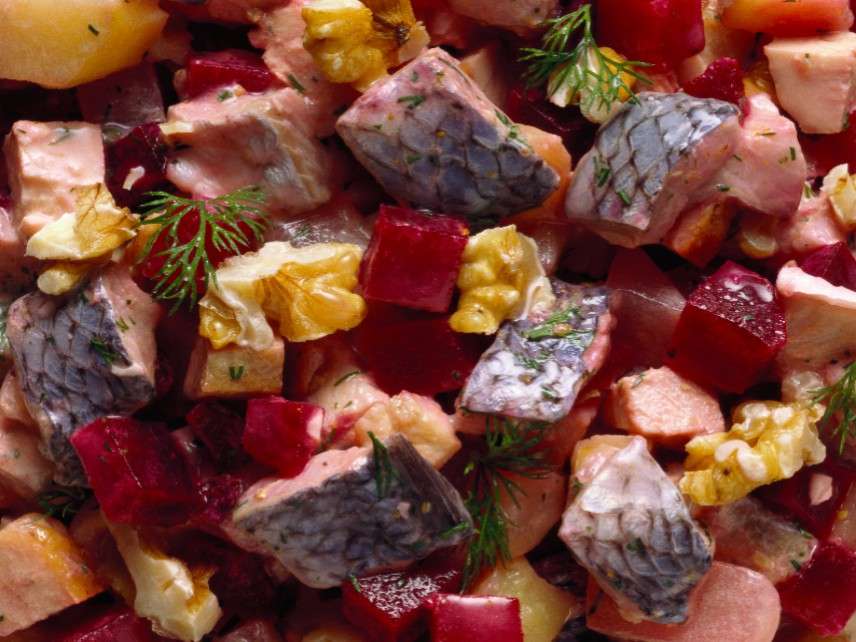Pickle Fight Reveals the Destructive Pettiness of Texas Food Regulators
In an effort to preserve its regulatory power, the Department of State Health Services refuses to concede that you can pickle foods other than cucumbers.

"Cottage food" laws let hobbyists sell baked and preserved goods in legal markets without regulatory interference. Unless, of course, the regulators try to get pedantic about the letter of the law.
As Reason columnist Baylen Linnekin reports in a piece for The New Food Economy, the Texas Department of State Health Services is claiming that only cucumbers can be called "pickles." Any other fruit or vegetable preserved in brine or vinegar is not technically a pickle, the agency insists, and thus is not covered by the state's cottage food law. The department has thus prohibited retirees Anita Patton-McHaney and James McHaney from selling pickled beets.
According to the Department of State Health Services, a "pickle" is a "cucumber preserved in vinegar, brine, or similar solution, and excluding all other pickled vegetables." In case that leaves any room for doubt, the agency makes things very clear in the FAQ posted on its website: "Only pickled cucumbers are allowed," it says. "All other pickled vegetables are prohibited."
"The purpose of food safety laws, including the Texas Cottage Foods Law, is to help make sure food being sold to the public doesn't make people sick and that the people preparing food that could be hazardous have the training to do so safely," says Chris Van Deusen, director of media relations with the Texas Department of State Health Services, in a recent email to me. "The law says pickles may be sold by unlicensed and uninspected producers but doesn't mention other pickled products. Since we didn't want to interpret something that wasn't there, we used the most common definition of pickles when we implemented the law in 2013."
The health department flack is being deeply disingenuous here. As Linnekin notes, what makes a pickled product safe is not the specific vegetable but the pH level of the solution. A pH below 4.6 means the solution is acidic, and acidic solutions kill harmful bacteria. While beets are naturally less acidic than some other vegetables, the "training" necessary to increase their acidity is also required for cucumbers, as well as carrots, okra, peppers, etc. You can learn this stuff online in a few minutes, or from cookbooks dating back to the 19th century.
Because the probability of infecting someone with a bacteria like the one that causes botulism (which is what most people worry about when canning and preserving veggies) has less to do with the vegetable than with the method of preparation, insisting that only pickled cucumbers are covered by the Texas Cottage Foods Law does not guarantee that everyone who decides to pickle and sell cucumbers under the law will do so correctly. But it seems most people are doing it well enough. The Centers for Disease Control (CDC) has recorded fewer than 200 cases of botulism across the entire U.S. each year, going back to at least 2001, and fewer than two dozen cases each year involve food.
The vast majority of botulism cases are diagnosed in infants and are unrelated to canned goods. The cases that involve both adults and food products prepared at home tend to reflect the kind of carelessness that you generally don't see in the cottage food economy, which no regulator can prevent—for example, the case of "beets roasted in aluminum foil and kept at room temperature for several days then made into a soup," which caused two Utah residents to develop botulism in July 2015.
You'd think a regulatory body operated by health experts would take all these factors into consideration, especially given the linguistic shakiness of insisting that only cucumbers can be pickles. But no. The McHaneys had to file suit against the Texas Department of State Health Services. Throwing this question to the courts doesn't seem like the wisest solution, though I suspect hours of oral argument over what constitutes a pickle could be pretty entertaining.
The more troubling phenomenon, and one Linnekin has documented very recently for Reason, is the willingness of health departments to intentionally misinterpret laws that disempower them. You'll note that I said troubling, not surprising.


Show Comments (65)